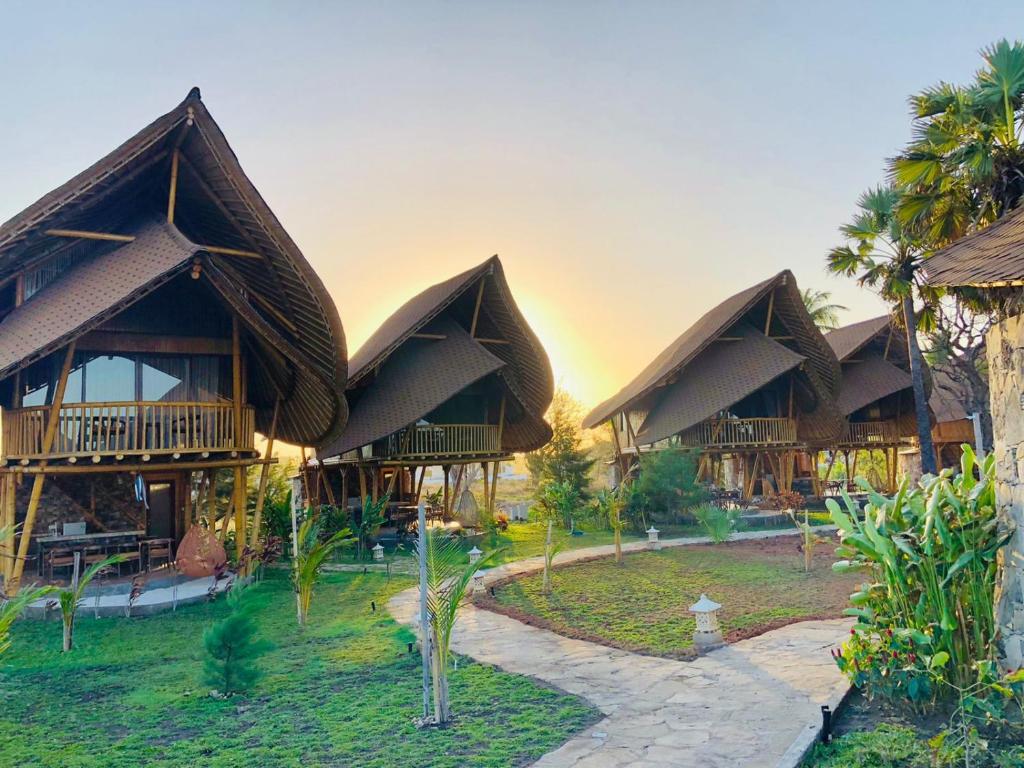Finding 5-star hotels with truly authentic local experiences is more than just booking a luxurious stay; it’s about immersing yourself in the heart and soul of a destination. This journey explores how discerning travelers can find hotels that go beyond opulent amenities, offering genuine cultural encounters that create lasting memories. We’ll delve into defining “authenticity,” identifying hotels that prioritize it, and examining how design, activities, and marketing contribute to a truly immersive experience.
From understanding the nuances of cultural interpretation to navigating the potential pitfalls of inauthentic claims, we’ll provide a framework for discerning travelers to confidently select hotels that deliver on the promise of genuine cultural immersion. We’ll explore practical strategies for researching hotels, identifying key criteria for evaluating authenticity, and ultimately, planning a trip that’s both luxurious and culturally enriching.
Defining “Authentic Local Experiences”
Defining “authentic local experiences” in the context of luxury travel is complex, as it intertwines subjective perceptions with objective offerings. It’s not simply about visiting a local market; it’s about engaging with the culture in a meaningful and respectful way, fostering genuine connection, and contributing positively to the community. The experience should feel genuine and uncontrived, rather than staged for tourists.Authenticity in luxury travel transcends superficial displays.
It involves a deeper understanding and appreciation of the local culture, history, and environment. This understanding should inform every aspect of the guest’s experience, from the hotel’s design and amenities to the activities and interactions offered.
Interpretations of Authenticity Across Cultures
The interpretation of authenticity varies significantly across cultures. What constitutes an authentic experience in Japan, with its emphasis on tradition and ritual, differs from that in Brazil, where vibrant street life and spontaneous interactions are central. In Japan, a tea ceremony led by a master might be considered deeply authentic, while in Brazil, a samba lesson in a favela, conducted with respect and sensitivity, could offer a similarly genuine experience.
In some cultures, authenticity might be tied to ancient traditions and craftsmanship, while in others, it could be found in contemporary art forms and expressions. The key is to understand and respect the nuances of each culture.
Key Elements of an Immersive Local Experience
Several key elements contribute to a truly immersive and memorable local experience. Firstly, genuine interaction with locals is crucial. This could involve meeting artisans, farmers, or community members, engaging in conversations, and learning about their lives and traditions. Secondly, participation in local activities is essential. This might involve cooking classes using local ingredients, learning traditional crafts, or attending cultural events.
Thirdly, a deep understanding of the local context is vital. The hotel should provide information and insights into the region’s history, environment, and social fabric, fostering a deeper appreciation of the destination. Finally, sustainable and responsible practices should be at the core of the experience, minimizing environmental impact and supporting the local community.
Framework for Evaluating Authenticity
Evaluating the authenticity of a hotel’s offerings requires a multifaceted approach. A robust framework should consider several factors. Firstly, assess the depth of engagement with the local community. Does the hotel source products and services locally? Does it employ local staff and support local businesses?
Finding 5-star hotels with truly authentic local experiences often involves researching beyond the usual tourist traps. To feel safe and secure while exploring, you might want to check out resources like home security automation system reviews and comparisons for small apartments , which can help you secure your belongings while you’re away experiencing the local culture. Then, you can relax knowing your home is protected while you enjoy those unforgettable 5-star adventures.
Secondly, examine the quality of the experiences offered. Are they led by knowledgeable and passionate locals? Do they offer genuine insights into the local culture and way of life? Thirdly, consider the environmental impact. Does the hotel operate sustainably, minimizing its ecological footprint?
Finally, evaluate the overall narrative. Does the hotel’s story resonate with the local context, presenting a truthful and respectful portrayal of the culture? A high score across these dimensions suggests a truly authentic offering. For example, a hotel that sources its food from local farms, employs local guides for excursions, and supports local artisans through its gift shop would score highly on authenticity.
Conversely, a hotel that merely offers staged cultural performances or uses generic décor would score poorly.
Identifying 5-Star Hotels with Authentic Experiences: Finding 5-star Hotels With Truly Authentic Local Experiences
Finding a five-star hotel that truly delivers an authentic local experience goes beyond simply boasting luxurious amenities. It requires a deeper dive into the hotel’s commitment to showcasing the unique culture and heritage of its location. This involves more than just offering a local cuisine tasting menu; it’s about creating immersive experiences that connect guests with the heart and soul of the community.
Examples of 5-Star Hotels Offering Authentic Experiences
Several high-end hotels worldwide have successfully integrated authentic local experiences into their offerings. The following table highlights some examples:
| Hotel Name | Location | Specific Authentic Experience Offered | Brief Description |
|---|---|---|---|
| Amanzoe | Porto Heli, Greece | Private cooking classes with local chefs | Guests learn to prepare traditional Greek dishes using locally sourced ingredients, gaining insight into regional culinary traditions. |
| Four Seasons Resort Bali at Sayan | Ubud, Bali | Traditional Balinese dance performances and workshops | Guests can witness captivating performances and even participate in workshops to learn the intricate movements and cultural significance of these dances. |
| La Mamounia | Marrakech, Morocco | Guided tours of the Medina and traditional hammam experiences | Explore the vibrant souks and historical sites of Marrakech’s Medina with expert guides, followed by a relaxing and authentic hammam experience. |
| The Oberoi, Udaivilas | Udaipur, India | Private boat rides on Lake Pichola with cultural performances | Enjoy a serene boat ride on Lake Pichola, experiencing the beauty of Udaipur’s palaces and enjoying traditional Rajasthani music and dance. |
Key Criteria for Selecting Hotels Prioritizing Cultural Immersion
Choosing a hotel that prioritizes genuine cultural immersion requires careful consideration. Key criteria include a demonstrable commitment to sourcing local products and services, employing local staff, supporting local communities through philanthropic initiatives, and offering experiences designed and led by local experts rather than simply staged for tourists. The hotel’s marketing materials should accurately reflect the depth and authenticity of their offerings.
Challenges in Verifying the Authenticity of Claimed Local Experiences
Verifying the authenticity of claimed local experiences can be challenging. Many hotels may advertise “authentic” experiences that are ultimately superficial or tourist-oriented. Guests should look beyond marketing claims and investigate the hotel’s actual involvement in the local community. Reviews from other travelers, especially those emphasizing cultural immersion, can be invaluable. Checking if the experience is led by local experts, uses locally sourced materials, and benefits the local community are key indicators of authenticity.
Resources for Researching Authentic Hotel Experiences
Several resources can aid in researching hotels offering genuine cultural experiences. Reputable travel guides, such as those published by Lonely Planet or Fodor’s, often feature detailed reviews and insights. Online forums and review sites like TripAdvisor, although needing careful consideration of potential biases, can provide valuable firsthand accounts from travelers. Blogs and articles focusing on sustainable and culturally sensitive travel offer further perspectives.
Checking the hotel’s website for detailed information about their community engagement initiatives is also a crucial step.
The Role of Hotel Design and Amenities
Hotel design and amenities play a crucial role in creating authentic local experiences for guests. By thoughtfully integrating elements of the surrounding culture into both the architecture and the services offered, 5-star hotels can elevate their offerings beyond mere luxury to provide truly immersive and memorable stays. This goes beyond simply offering local cuisine; it’s about creating an environment that reflects and celebrates the spirit of the place.
Hotel architecture and design can powerfully reflect and enhance local culture through various means. The use of indigenous building materials, such as locally sourced stone or wood, immediately establishes a connection to the region. Architectural styles can also draw inspiration from traditional designs, incorporating elements like vernacular roofs, intricate carvings, or specific color palettes prevalent in the area.
Even the layout of the hotel – perhaps mirroring the structure of a traditional village or incorporating elements of local landscaping – can contribute to a sense of place.
Hotel Amenities and Authentic Local Experiences
Amenities such as restaurants, spas, and activity programs offer prime opportunities to showcase local culture. Restaurants can feature menus highlighting regional specialties, prepared with locally sourced ingredients and presented in a style reflective of the area’s culinary traditions. Spas can incorporate locally inspired treatments, using indigenous ingredients and techniques. Activity programs might include guided tours of local historical sites, workshops on traditional crafts, or opportunities to participate in cultural events.
The key is to move beyond superficial gestures and create experiences that genuinely immerse guests in the local culture.
Hypothetical Hotel Room Design Incorporating Local Elements
Imagine a hotel room in a region known for its vibrant textile traditions. The walls are adorned with hand-woven tapestries, showcasing intricate patterns and designs unique to the area. The furniture is crafted from locally sourced wood, featuring simple yet elegant lines that reflect traditional carpentry techniques. A small sitting area might include cushions made from locally produced fabrics, and the bedding features hand-stitched quilts.
The artwork on the walls showcases local artists, depicting scenes of daily life or historical events. Even the toiletries are locally made, using natural ingredients found in the region. The overall effect is one of understated elegance and a genuine connection to the local culture, creating a space that feels both luxurious and authentic.
Comparative Analysis of 5-Star Hotel Approaches to Local Culture Integration
Different 5-star hotels employ diverse strategies to integrate local culture into their amenities. Some hotels may focus on showcasing local art and crafts through displays in public areas and guest rooms. Others might prioritize culinary experiences, partnering with local chefs to create unique dining experiences. Still others might invest in cultural immersion programs, offering guests opportunities to interact with local communities and participate in traditional activities.
Finding 5-star hotels with truly authentic local experiences requires careful research; you want a stay that’s memorable, not a security nightmare. This is why understanding digital security is important, even when traveling, as it relates to your home; learning about preventing home security automation system hacking and vulnerabilities can help ensure peace of mind while you’re away exploring those unique local experiences.
After all, a relaxing vacation starts with knowing your home is safe.
The most successful hotels often combine multiple approaches, creating a holistic experience that truly immerses guests in the local culture. For example, a hotel in Bali might incorporate traditional Balinese architecture, offer cooking classes focusing on Balinese cuisine, and partner with local artisans to create unique spa treatments, all while showcasing Balinese art throughout the property. This multifaceted approach creates a far more impactful and memorable experience than a single, isolated element.
Guest Experiences and Activities
Creating truly memorable stays at 5-star hotels hinges on offering guests more than just luxurious accommodations; it’s about crafting immersive experiences that connect them authentically with the local culture. This involves carefully curated activities, highly trained staff, and meaningful community partnerships.
The goal is to move beyond typical tourist traps and instead provide opportunities for genuine cultural exchange and understanding. Guests should leave feeling they’ve truly experienced the destination, not just visited it.
Unique and Culturally Relevant Activities
Hotels can leverage their location to offer unique and enriching activities. These experiences should be designed to provide genuine cultural immersion and avoid the feeling of staged or contrived tourism.
- Private cooking classes with local chefs: Learning to prepare traditional dishes using local ingredients provides a hands-on cultural experience and a deeper understanding of regional cuisine.
- Guided walking tours led by local historians or artists: Exploring the city’s hidden gems and historical sites with a knowledgeable local guide offers a more intimate and insightful experience than a typical tourist bus tour.
- Visits to local artisan workshops: Witnessing traditional crafts being created firsthand provides a connection to the local community and its heritage. Guests could even participate in a workshop, creating their own souvenir.
- Attend local festivals or cultural events: Hotels can arrange tickets and transportation for guests to experience authentic celebrations, offering a glimpse into the local lifestyle.
- Participate in a traditional tea ceremony or other cultural ritual: These experiences offer a deeper understanding of local customs and traditions, fostering a sense of respect and appreciation.
The Importance of Staff Training in Delivering Authentic Local Interactions
Highly trained staff are essential for delivering authentic local experiences. Their knowledge, attitude, and interactions directly influence the guest’s perception of authenticity.
Training should focus on more than just the technical aspects of hospitality. Staff should receive thorough cultural sensitivity training, learning about local customs, traditions, history, and current events. They should be empowered to share their own personal experiences and perspectives, fostering genuine connections with guests. Fluent multilingualism is also crucial, enabling seamless communication and a more welcoming atmosphere.
Furthermore, staff should be trained to anticipate guest needs and personalize their interactions, ensuring a high level of service that enhances the overall experience.
Finding 5-star hotels with truly authentic local experiences often involves careful planning. You want peace of mind knowing your home is secure while you’re away, which is why learning about setting up a reliable home security automation system with pet detection is a great idea. This allows you to fully relax and enjoy your luxurious getaway, knowing everything is taken care of back home, so you can focus on those immersive cultural experiences.
The Impact of Community Partnerships on Creating Genuine Cultural Immersion
Collaborating with local communities is vital for creating genuine and respectful cultural immersion. These partnerships ensure that the experiences offered are authentic and benefit the local population.
Partnering with local artisans, guides, chefs, and businesses not only provides guests with access to unique experiences but also supports the local economy and preserves cultural heritage. Hotels can work with local organizations to develop sustainable tourism initiatives that benefit both visitors and residents. This approach ensures that the cultural exchange is reciprocal and mutually beneficial, promoting a deeper understanding and appreciation of the local culture.
Sample 3-Day Itinerary: Authentic Local Experiences
This itinerary demonstrates how a 5-star hotel can weave authentic local experiences into a guest’s stay.
Day 1: Arrival and settling in, followed by a guided walking tour of the historic city center with a local historian, focusing on lesser-known architectural details and historical anecdotes. Evening: Enjoy a private cooking class featuring regional specialties.
Day 2: Morning: Visit a local artisan workshop specializing in traditional crafts, followed by a hands-on pottery class. Afternoon: Relax by the hotel pool or explore the hotel’s spa. Evening: Attend a traditional music performance at a local venue.
Day 3: Morning: Explore a nearby market with a local guide, learning about local produce and culinary traditions. Afternoon: Visit a local tea plantation and participate in a traditional tea ceremony. Departure.
Marketing and Communication of Authentic Experiences
Effectively communicating the authenticity of a 5-star hotel’s local experiences is crucial for attracting discerning travelers seeking immersive journeys. Marketing must move beyond generic luxury descriptions and showcase the genuine cultural immersion offered. This involves a strategic approach that builds trust and resonates with the target audience’s desire for meaningful travel.Successful marketing hinges on showcasing the unique aspects of the hotel’s partnership with the local community and environment.
It’s about demonstrating a commitment to cultural preservation and responsible tourism, not simply using local elements as a superficial marketing tool.
Strategies for Communicating Authenticity
Hotels can effectively communicate authenticity through various channels. High-quality photography and videography showcasing genuine interactions between guests and locals are essential. Detailed descriptions of experiences should emphasize the cultural significance and the involvement of local artisans, guides, and communities. User-generated content, featuring authentic guest reviews and testimonials, builds credibility and social proof. Collaborating with travel bloggers and influencers who align with the hotel’s values can also expand reach and build trust.
Finally, incorporating local languages into marketing materials can add a layer of authenticity and appeal to a wider audience.
Examples of Successful Marketing Campaigns
The Four Seasons Resort Bali at Sayan, for example, effectively communicates its commitment to Balinese culture through its marketing materials. Their campaigns emphasize the resort’s integration within the natural environment and its support of local artisans. Similarly, many luxury hotels in Bhutan highlight their commitment to sustainable tourism and their partnerships with local communities. These campaigns often feature compelling narratives that showcase the unique cultural experiences available to guests, emphasizing the human element and emotional connection.
Challenges in Marketing Authentic Experiences
A significant challenge lies in avoiding clichés and stereotypes. Marketing materials must move beyond superficial representations of local culture and instead offer nuanced portrayals that respect the complexity and diversity of the local community. Another challenge is ensuring that the experiences offered are genuinely authentic and not simply staged for tourist consumption. This requires careful planning and collaboration with local communities to ensure the experiences are respectful and mutually beneficial.
Finally, effectively communicating the value proposition of authentic experiences, particularly when they may come at a higher price point than generic tourist activities, requires careful consideration of the target audience’s needs and preferences.
Sample Marketing Brochure: The Serene Sanctuary Hotel, Finding 5-star hotels with truly authentic local experiences
The Serene Sanctuary Hotel invites you to experience the heart of [Fictional Location]. Immerse yourself in our curated collection of authentic experiences, crafted in partnership with local artisans and community leaders.* Artisan Workshops: Learn the ancient art of [Fictional Craft] from a master craftsman, creating your own unique souvenir to cherish. This hands-on experience allows for direct interaction with the local community and provides a deeper understanding of their traditions.* Culinary Journey: Embark on a gastronomic adventure, exploring the diverse flavors of [Fictional Location] through a private cooking class.
Learn to prepare traditional dishes from locally sourced ingredients, guided by a renowned chef who shares their passion and knowledge.* Spiritual Exploration: Journey to the sacred [Fictional Landmark], guided by a local spiritual leader who shares ancient traditions and practices. This mindful experience offers a unique opportunity for reflection and personal growth within a culturally significant setting.* Hidden Gems Tour: Discover the lesser-known corners of [Fictional Location] with a local guide who unveils the hidden stories and unique perspectives only they can share.
Explore local markets, ancient ruins, and hidden trails, gaining an intimate understanding of the region’s rich history and culture.
Final Conclusion

Source: tanomasumba.com
Ultimately, finding a 5-star hotel that offers a truly authentic local experience requires careful research, a discerning eye, and an understanding of what constitutes genuine cultural immersion. By considering the hotel’s design, amenities, activities, and marketing strategies, travelers can confidently choose accommodations that promise not just luxury, but a transformative connection with the destination’s unique character. The reward? An unforgettable journey that transcends the typical tourist experience, leaving you with rich memories and a deeper appreciation for the local culture.
Expert Answers
How can I tell if a hotel’s claims of “authentic experiences” are genuine?
Look for hotels that partner with local communities, showcase local artisans, and offer experiences led by local experts, not just staged performances. Read reviews carefully, focusing on guest experiences that describe genuine interactions and cultural immersion.
Are there price differences between 5-star hotels with and without authentic experiences?
While price is not always a direct indicator, hotels emphasizing authentic experiences may sometimes command a premium due to the cost of partnering with local communities and providing unique activities.
What if I have dietary restrictions or accessibility needs? How can I ensure the hotel caters to them while still providing authentic experiences?
Contact the hotel directly to discuss your needs. Reputable hotels will be proactive in accommodating diverse requirements while maintaining the integrity of their cultural offerings. Look for hotels with clear accessibility information on their websites.
What’s the best way to book a stay at a hotel with authentic local experiences?
Book directly through the hotel’s website whenever possible, or through reputable travel agents specializing in cultural tourism. This allows for more direct communication and customization of your experience.




